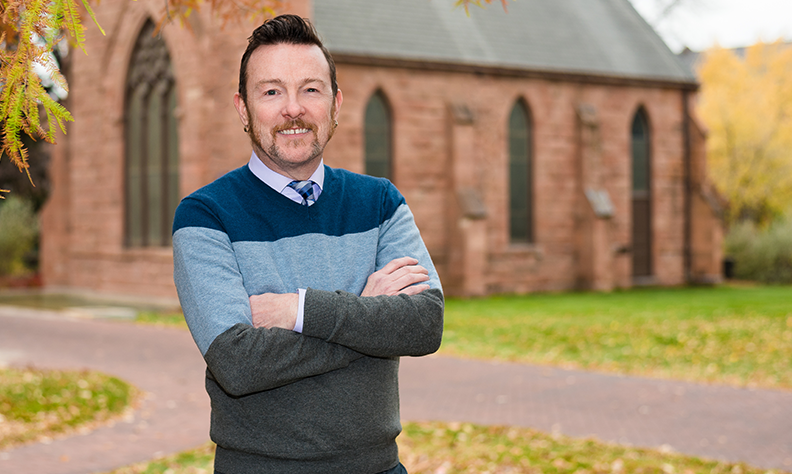Graduate School of Social Work 2018–2019 Progress Report
In our second year guided by a new strategic roadmap, we are leaning into change, making deliberate, steady progress to achieve our goals and realize our vision for the Graduate School of Social Work, the social work profession and the broader world. Learn more about our recent progress.
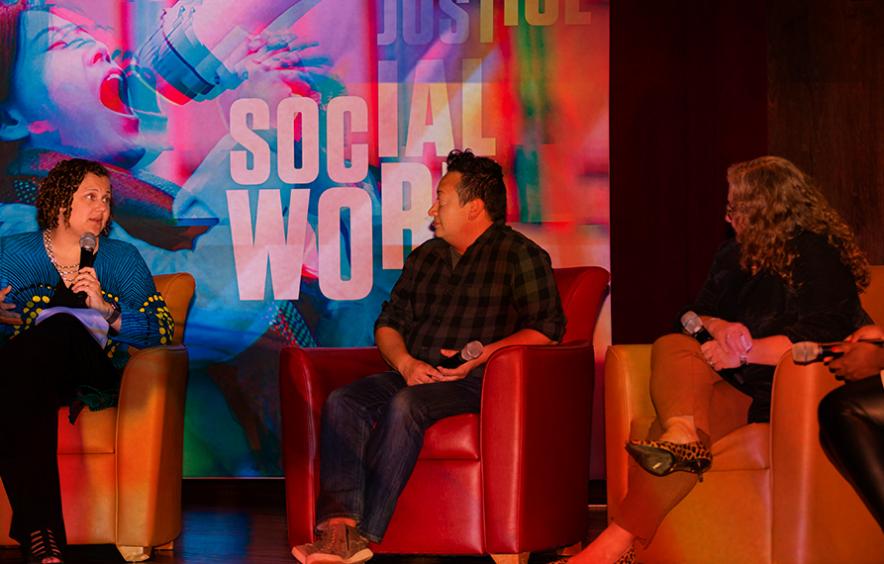
Strategic Goal: Engage
We have reimagined community engagement and built powerful programming that expands to all members of our community — social workers, activists and allies who share our commitment to social change. From restorative justice to child welfare, our research portfolio continues to expand, and research expenditures have increased by $2 million since 2016–17.
-
Strategy | Reinforce and expand our bridge to and from the community
Over the past year, 1,780 community members participated in events hosted by our Office of Community Engagement, including a nonpartisan presentation about local and state ballot initiatives, and several Catalyst Series for Social Justice events: a performance of WET: A DACAmented Journey, a discussion about the future of social change, a storytelling workshop and performance focused on challenging systems to create wellness, and a talk by DeRay Mckesson on justice, power, and freedom.
In 2018–19, the Office of Community Engagement also launched a community-engaged learning initiative with three courses — offered in partnership with community organizations — that incorporated a more intensive and intentional community-engagement approach. The goal is to create mutually beneficial partnerships and leverage the school’s assets to benefit the community.
-
Strategy | Advance training and knowledge that influence public policy
More than 1,350 people have participated in our Science for Action Series since its start in fall 2017. In its second year, the series focused on three of the Grand Challenges for Social Work: Build Financial Capability for All, Close the Health Gap, and Advance Long and Productive Lives. The series will cover all 12 grand challenges over four years.
-
Strategy | Engage in scholarship and research that is driven by communities and rooted in social justice, continuing our influential and innovative research legacy
In 2018–19, our faculty received $7.7 million in federal funding for 45 research projects—68% of total awards—including:
- Testing Transactional Family Processes that Support Father Involvement and Child Socio–Emotional Well-being
- Safety Awareness for Empowerment—A Randomized Clinical Trial
- National Child Welfare Workforce Institute (NCWWI 3) Evaluation
- The Colorado Victim Offender Dialogue Project
Research Expenditures, 2016–19
2016–17 $8.4 million 2017–18 $9.9 million 2018–19 $10.5 million
Liza Saffo, MSW ’15, “White Fragility” Attendee“It’s important that GSSW initiate these types of conversations so they become more mainstream and so that the community has a safe space to talk about injustices and marginalization that is taking place everywhere, all the time.”
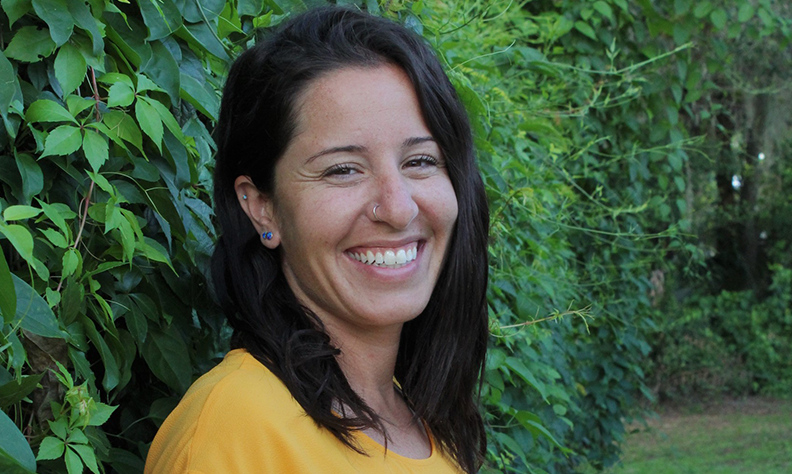
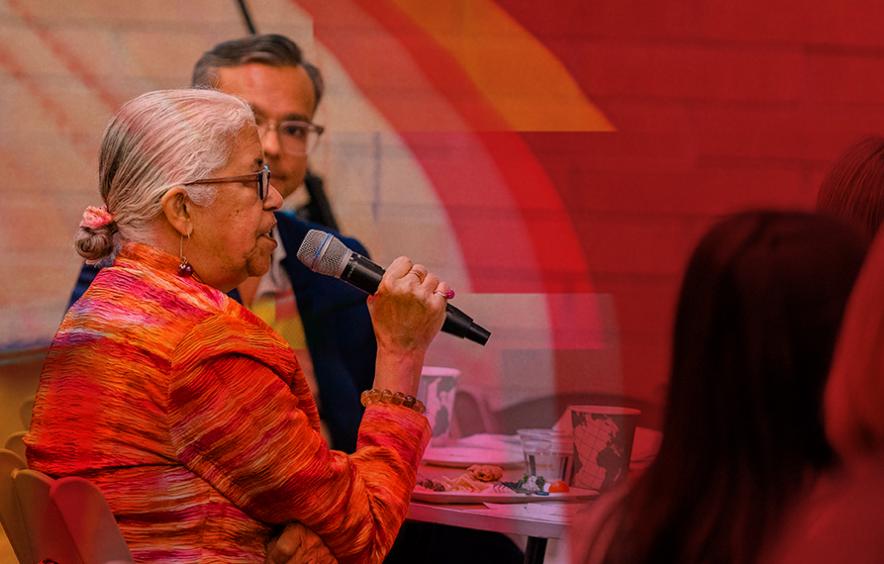
Strategic Goal: Envision
We have reignited thousands of personal alumni relationships nationwide, revamped our brand identity and shared powerful stories about our impact. We invested in our people and technology through a new advising model, self-guided student tools and remote accessibility.
-
Strategy | Invest in meaningful relationships with alumni
We have expanded engagement programming for our 9,000+ alumni, including inviting alums to participate in monthly panels and workshops for students on topics ranging from community organizing to a “boot camp” for private practice. With help from new regional outreach teams in San Francisco, Los Angeles, Chicago, New York City and Washington, DC, we’re now meeting in person and hosting events for alumni nationwide. Our 4,000+ alumni in the Denver metro area have the opportunity to join us at a variety of new events — from going behind the scenes at Denver Startup Week, to convening for an alumni book club. In all, we were in contact (in person, or by phone and email) with 1,600+ alumni in 2018–19; nearly 1/3 of those were in-person contacts.
-
Strategy | Advance and celebrate the uniqueness of our school
Drawing on the insights developed during our strategic planning process and building on the University’s brand platform, we developed a new messaging framework, voice and tone, and updated visual design that have been implemented across our communications and marketing materials — from an all-new website to admission collateral and fundraising materials. We’re developing powerful stories about our impact and outcomes and sharing them in our online newsroom, through social media and in a revamped e-newsletter.
-
Strategy | Enhance our financial, physical, and human capital
We’ve made several significant new investments in people and technology, including:
- We assessed operations across all departments to create efficiencies and ensure we were staffed to meet our goals. This included revamping our advising model and other student-focused processes to be more efficient and better serve students. We are providing students with more self-service opportunities, such as new tools to plan course schedules and track progress.
- In order to enhance accessibility and facilitate real-time engagement in lectures, classes and meetings for people joining remotely, most of our classrooms and conference spaces are now equipped with large digital displays, hanging microphones and Zoom room connectivity.
-
Strategy | Illuminate the vast fields of social work practice and impact in the global community
Assistant Professors Anamika Barman-Adhikari and Anthony Fulginiti helped to plan the University’s inaugural Artificial Intelligence (AI) Summit, held in April 2019. As part of an ongoing University-wide effort to harness human-centered AI, the summit explored which interdisciplinary, University-wide structures and systems are needed to unlock collaboration around AI to serve the public good.
Barman-Adhikari and Fulginiti are among a growing cadre of social work scholars applying AI in their research, and they believe social workers can make a significant contribution to the greater body of AI work underway worldwide. “It’s important to have people coming to AI with a different lens. If you bring a social justice lens to building a computer algorithm, you’re more likely to consider the potential bias going into it,” Fulginiti explains. “By including social work expertise, we can try to create AI tools that solve the problem we hope to solve and ensure that by using it, we’re not inadvertently creating bias or more injustice.”
9,000+ We have expanded engagement programming for our 9,000+ alumni.
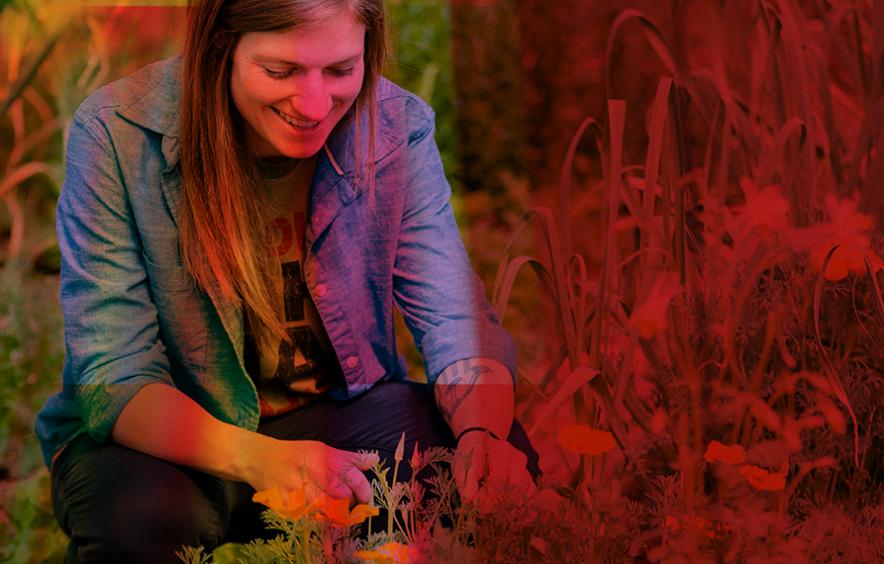
Strategic Goal: Learn
We’ve created a pathway to employment with robust field internship partnerships and provided 50 students with a $10,000 stipend through our behavioral health workforce program.
-
Strategy | Create a dynamic learning experience for all members of our community
Field internships translate directly into full-time, post-MSW employment for many of our students, thanks to opportunities such as an expanded partnership with Savio House. The agency provides specialized support, treatment and intervention services to promote child safety and effective parenting, and to stabilize adolescents in family care and other long-term support environments. MSW students complete a yearlong Savio House internship and receive extensive training in the evidence-based practices Savio uses. Upon graduation, they join the Savio staff at an above-entry-level salary and are eligible for a bonus after completing a year of employment.
-
Strategy | Meet workforce needs through specialized skill-based training
Funded by the U.S. Department of Health and Human Services Health Resources and Services Administration, the Collaborative Learning and Innovative Educational Models of Behavioral Health Program (CLIMB) is a behavioral health workforce program that provides specialized training and $10,000 stipends to up to 50 concentration-year MSW students annually. Students focus on integrated behavioral health or on prevention and treatment of opioid use and other substance use disorders and commit to working in Colorado’s rural or medically underserved communities.
Total MSW Enrollment, 2016–19
2016–17 504 2017–18 527 2018–19 866
48 Across all programs, we currently enroll students in 48 states.
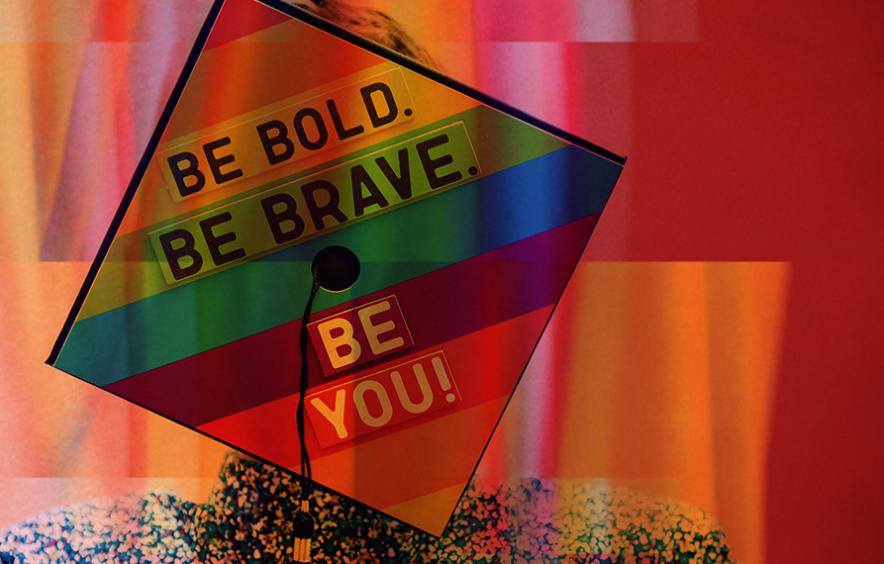
Strategic Goal: Transform
We launched a schoolwide initiative to deepen our understanding of important social justice topics such as implicit bias and microaggressions. We also continue to prioritize scholarships for marginalized populations such as Native and Spanish-speaking students.
-
Strategy | Challenge and disrupt systems of oppression within and outside our school
In 2019, we launched a Culture and Climate Initiative to facilitate individual learning and behavior change to embody equity in interactions among faculty, staff and students. The initiative includes learning sessions on topics such as implicit bias, microaggressions, and power, privilege and oppression that are required for all faculty, staff and PhD students, who will also participate in small-group elective learning opportunities.
-
Strategy | Increase the accessibility of social work higher education for those who have historically been excluded
There is a shortage of social workers in rural Colorado communities, and the need for culturally and linguistically competent social workers is particularly acute. Our Four Corners MSW Program (based in Durango) and Western Colorado MSW Program (based in Glenwood Springs) helps meet this need by making a graduate social work education accessible to local residents. For the past 8 years, the John and Sophie Ottens Foundation has supported our work in the Four Corners area by providing scholarships and travel funds for Native students.
More recently, community member Bob Follett funded scholarships for 10 new students enrolled in our Western Colorado MSW Program. Recipients commit to working with immigrant and Spanish-speaking populations in the region or providing behavioral health services. Kaylee Peterson thought she would have to leave her hometown of Silt, Colorado, to attend graduate school, but the Follett scholarship made it possible to stay in her community and continue working with children and families while she pursues her MSW. “There is so much need here, and it is a growing population,” Peterson says. “I want to create a stronger community so as it does become bigger, it’s a healthy community.”
-
Strategy | Invest in and elevate our unique programs
In 2019, we were ranked No. 17 on the U.S. News & World Report list of Best Schools for Social Work.
Professor Eugene Walls, Culture and Climate Advisory Group Member"No matter their identities, we want students, staff and faculty to feel valued, respected and to have a voice, and that diverse identities are included in operations, content and curricula. We want to live into the values of social justice so they are ever-present in the building."
